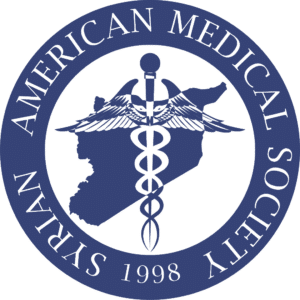Critical Care Medical Charity in Syria
Critical Care Charity:
Primary, Secondary & Tertiary Services
SAMS is a critical care charity and delivers life-saving care at every level, from primary health clinics to advanced hospital procedures, ensuring that vulnerable families receive the treatment they need
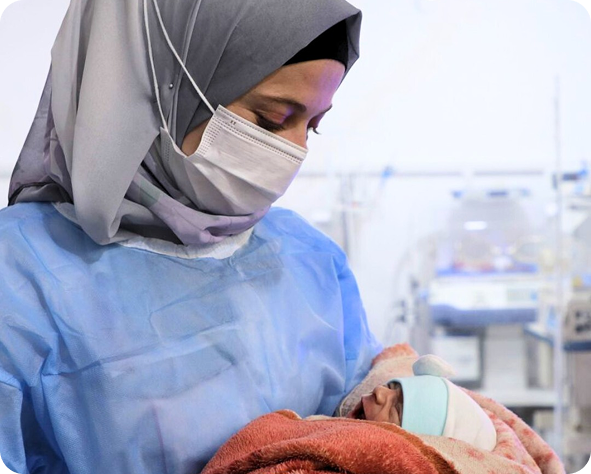
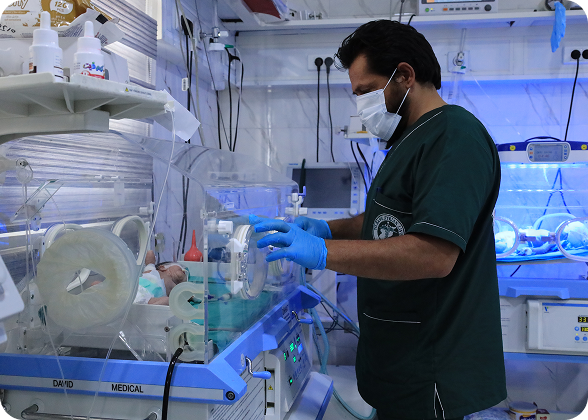
Primary Care
Primary healthcare is often the first point of contact for patients. It supports early diagnosis, empowers individuals to manage their conditions, and prevents disease from advancing. SAMS’ clinics also link patients to broader services such as mental health support, nutrition, protection, and specialized referrals. In 2024, teams conducted numerous simulation lab trainings to strengthen emergency response and clinical capacity.
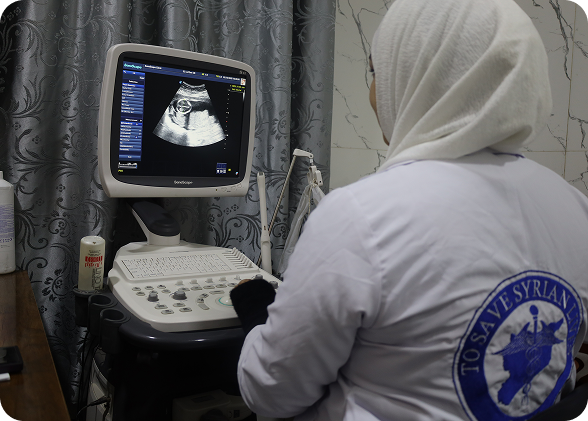
Secondary and
Tertiary Care
SAMS remains a key provider of advanced care for internally displaced Syrians, refugees, and host communities across the region. Syrian physicians employed in specialized hospitals deliver critical procedures every day. This includes dialysis, cardiac catheterization, chemotherapy, and complex surgeries, services that are often out of reach for vulnerable patients.
Our Impact (2024)
4,440,364
Medical services provided
1,463,533
People reached
144
Facilities supported in 7 countries

432
Training and education sessions held
Maternal and Newborn Care
Safe childbirth is at the center of SAMS’ healthcare mission. In 2024, a network of maternity hospitals across northwest Syria, including Al Dana, Qah, Raju, Al Shifa in Afrin, and the Specialized Maternity Hospital in Idlib, welcomed 22,052 newborns thanks to programs led by our critical care charity.
These facilities provide antenatal and postnatal care, ensuring both mothers and infants receive the support they need.
Beyond Syria, SAMS continues to reach vulnerable mothers. In Greece, mobile medical teams provide care to refugees and migrant women in camps and clinics in the Attica region.
In Lebanon, financial assistance programs helped cover hospital costs for 1,021 newborns from refugee families, offering relief to parents during their most vulnerable moments.
Born from Resilience
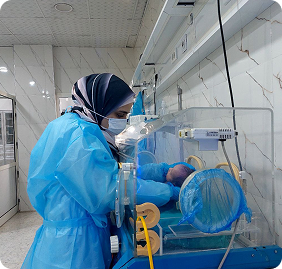
Maya’s Journey
“Maya returned from Homs to Idlib to deliver her baby at Idlib Maternity Hospital, the same place that cared for her throughout pregnancy.
Despite bombings that left the hospital damaged, she trusted the team. On the day of delivery, a C-section was required. With skill and surgical sutures provided through an IHP grant, doctors safely delivered her child.
For Maya, the hospital was more than a facility, it was a lifeline of resilience and hope.”
Maternal & Newborn Care
137,334
Educational sessions held

91,556
Children supported
9
Specialist therapy sessions

5
Speech therapy sessions
